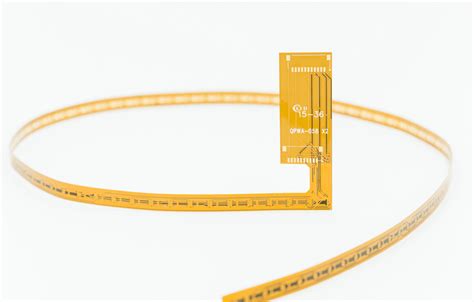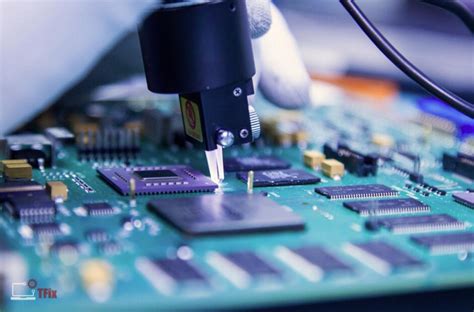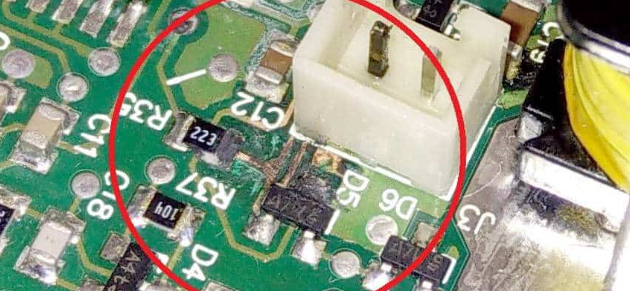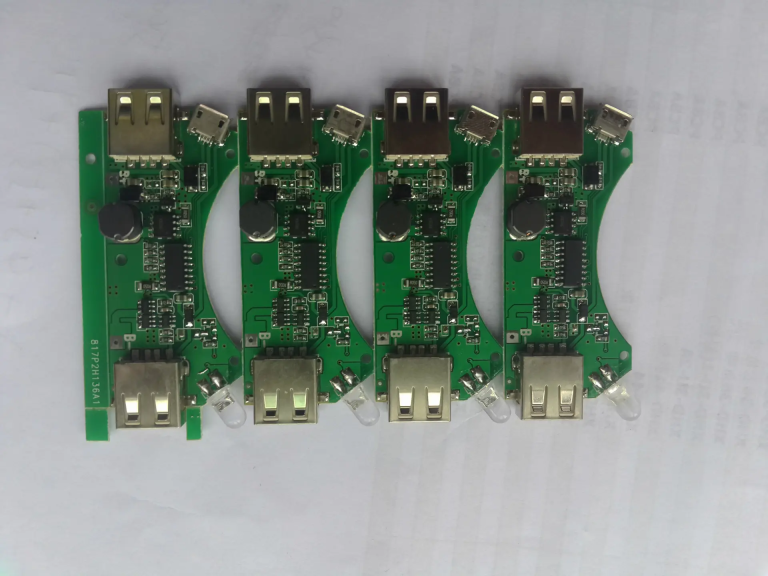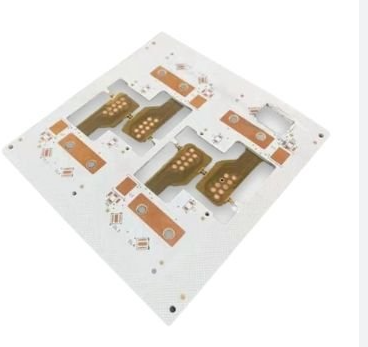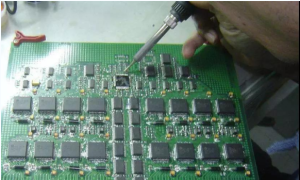US-Based Flexible PCB Manufacturers for Prototype & Production
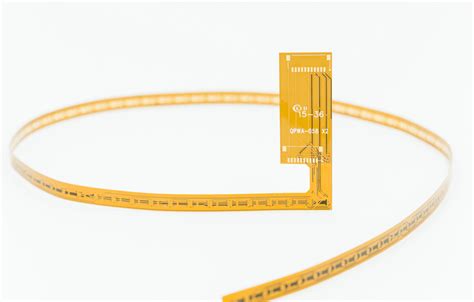
Key Takeaways
When exploring PCB manufacturing options in the US, you’ll find distinct advantages in partnering with domestic suppliers. Local PCB manufacturing companies streamline communication, reduce lead times, and adhere to stringent quality standards—critical for projects requiring rapid iteration or complex designs. Whether you need prototype validation or full-scale production, these manufacturers offer low-to-high volume PCB manufacturing solutions tailored to your requirements.
Tip: Always request a detailed breakdown of PCB manufacturing costs upfront. This helps avoid hidden fees and ensures alignment with your project budget.
Here’s a quick comparison of key factors to consider when selecting a supplier:
| Factor | Prototype Phase | Production Phase |
|---|---|---|
| Turnaround Time | 3-5 days | 2-4 weeks |
| Cost per Unit | Higher | Lower (volume discounts) |
| Flexibility | High | Moderate |
Domestic PCB manufacturing businesses often excel in rigid-flex PCB fabrication, combining durability with design versatility. For time-sensitive projects, prioritize suppliers offering quick-turn services—some can deliver functional prototypes within 72 hours. Balancing PCB manufacturing cost with quality is key; cheaper offshore options may compromise on material integrity or compliance certifications.
By aligning your needs with a US-based partner, you gain access to advanced engineering support and faster resolution of design challenges, ensuring your flexible circuits meet industry-specific reliability standards.
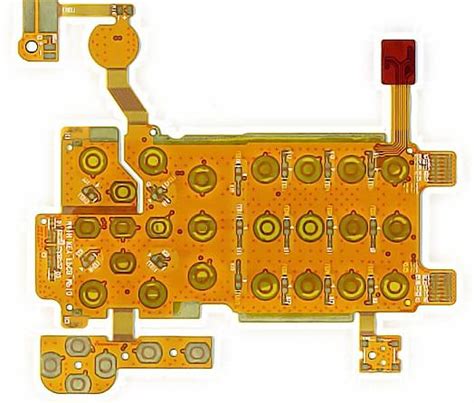
US Flexible PCB Manufacturing Advantages
When sourcing PCB manufacturing solutions, partnering with domestic providers offers distinct benefits. US-based PCB manufacturing companies leverage advanced automation and stringent quality controls to deliver precision-engineered flexible circuits. Their proximity eliminates cross-border logistics delays, accelerating prototype iterations and reducing time-to-market by up to 40% compared to overseas alternatives.
Geographic closeness also simplifies communication, enabling real-time collaboration on design adjustments. This minimizes errors and ensures alignment with your technical specifications—critical for managing PCB manufacturing cost while maintaining performance. Additionally, compliance with ITAR and ISO 9001 standards guarantees adherence to rigorous reliability benchmarks, reducing risks in aerospace, medical, or defense applications.
Domestic suppliers often provide transparent pricing models, helping you optimize budgets for both low-volume prototyping and scaled production. By prioritizing local partnerships, you support the growth of the PCB manufacturing business ecosystem while securing IP protection under U.S. regulations. For streamlined workflows, consider requesting a quote from trusted domestic PCB manufacturing partners.
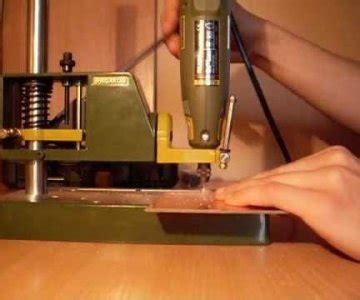
Prototype to Production PCB Solutions
When navigating PCB manufacturing for flexible circuits, understanding how to transition seamlessly from prototyping to full-scale production is critical. Leading PCB manufacturing companies in the U.S. specialize in bridging this gap, offering scalable workflows that maintain consistency in quality and design integrity. Whether you’re testing a low-volume prototype or preparing for high-volume runs, these suppliers optimize processes to reduce PCB manufacturing cost while meeting stringent timelines.
A key advantage of partnering with domestic providers is their ability to align prototyping iterations with production-ready specifications. Advanced tooling and automated assembly lines ensure design flaws are resolved early, minimizing delays. For startups or enterprises scaling their PCB manufacturing business, this approach eliminates costly mid-production redesigns.
Transitioning smoothly also hinges on material selection and layer-count adjustments. Experienced manufacturers guide you through trade-offs—like choosing polyimide for heat resistance or adjusting copper weights—to balance performance and cost. By integrating design-for-manufacturability (DFM) feedback during prototyping, you avoid surprises in later stages.
Ultimately, the right partner ensures your flexible PCB project evolves from concept to market-ready product without compromising speed, quality, or budget—a necessity in industries where agility defines competitiveness.
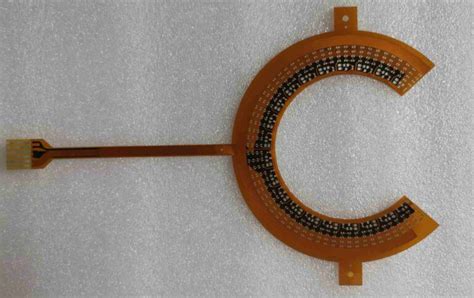
Quick-Turn Flex Circuit Board Services
When time-sensitive projects demand rapid iteration, partnering with PCB manufacturing companies that specialize in quick-turn services ensures your flexible circuit designs move from concept to reality without delays. These providers streamline processes like design validation, material sourcing, and multilayer stacking to slash lead times—often delivering prototypes in as few as 24–48 hours. By leveraging advanced fabrication technologies and localized supply chains, US-based manufacturers minimize PCB manufacturing cost while maintaining precision for complex geometries, fine-pitch traces, and high-density interconnects (HDIs).
A key advantage of prioritizing speed is the ability to test multiple design iterations early, identifying potential flaws before full-scale production. However, accelerated timelines don’t mean compromising quality. Reputable PCB manufacturing firms adhere to IPC-6013 Class 3 standards for flex and rigid-flex boards, ensuring reliability under bending, thermal stress, and vibration. For businesses scaling from prototypes to batches, some suppliers offer hybrid workflows that combine quick-turn prototyping with low-to-high volume PCB manufacturing under one roof—optimizing both speed and economies of scale.
When evaluating PCB manufacturing business partners, verify their capacity to handle urgent orders without hidden fees. Transparent pricing models, real-time order tracking, and dedicated engineering support are critical for maintaining project momentum. This approach not only accelerates time-to-market but also aligns with broader strategies for managing PCB manufacturing cost across product lifecycles.
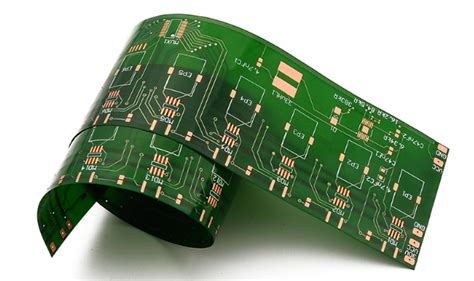
Rigid-Flex PCB Fabrication Expertise
When sourcing PCB manufacturing solutions for rigid-flex designs, you need partners with specialized expertise to balance durability and flexibility. Leading PCB manufacturing companies in the U.S. combine advanced material science with precision engineering to create boards that withstand dynamic bending and high-stress environments. Their processes often integrate laser drilling, multilayer lamination, and automated optical inspection (AOI) to ensure reliability across aerospace, medical, and automotive applications.
A key advantage of working with domestic suppliers is their ability to optimize PCB manufacturing cost without compromising quality. By leveraging in-house design support, they mitigate risks like impedance mismatches or delamination during prototyping. This expertise becomes critical when transitioning to production, where stack-up complexity and material compatibility directly impact yields. For businesses scaling a PCB manufacturing business, partnering with certified fabricators ensures compliance with IPC-6013 and MIL-PRF-31032 standards, reducing rework and accelerating time-to-market.
Whether you require hybrid rigid-flex boards or fully flexible circuits, prioritize suppliers offering design-for-manufacturability (DFM) feedback. This collaboration minimizes iterations, especially when balancing PCB manufacturing cost against performance requirements like signal integrity or thermal management.
Low-to-High Volume PCB Manufacturing
When scaling PCB manufacturing from prototypes to full production, partnering with US-based flexible PCB manufacturers ensures seamless transitions across volume tiers. Whether you require 50 units for initial testing or 50,000 for market deployment, domestic PCB manufacturing companies optimize workflows to balance PCB manufacturing cost with quality. For low-volume orders, advanced rapid tooling and modular setups minimize setup fees while maintaining precision. As demand grows, automated assembly lines and bulk material procurement unlock economies of scale, reducing per-unit expenses without compromising reliability.
Mid-volume PCB manufacturing business operations benefit from hybrid models, blending agile prototyping techniques with production-grade processes. This approach lets you adjust quantities dynamically, addressing demand fluctuations or design iterations. High-volume runs leverage dedicated manufacturing cells, where streamlined processes and rigorous testing protocols ensure consistency across large batches.
Domestic suppliers also mitigate risks like overseas logistics delays, offering clearer visibility into timelines and PCB manufacturing cost structures. By aligning your project’s scope with a manufacturer’s capacity tier—whether niche low-volume specialists or industrial-scale providers—you maintain control over budgets, lead times, and technical specifications. Always request detailed breakdowns of tooling fees, material options, and turnaround thresholds to optimize your production strategy.
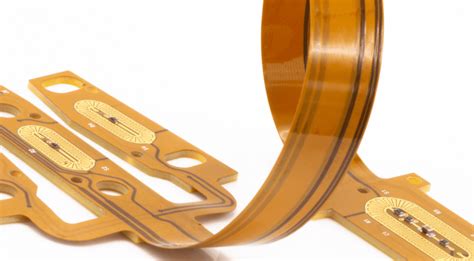
Choosing US-Based Flex PCB Suppliers
When selecting PCB manufacturing companies for flexible circuits, proximity matters. Domestic suppliers reduce logistical complexities while ensuring compliance with ITAR and IPC-6013 standards. You’ll want partners offering transparent PCB manufacturing cost breakdowns, including tooling fees, material choices (like polyimide or PET), and volume-based pricing tiers. Prioritize firms with proven expertise in dynamic flex applications or high-density interconnects—critical for aerospace, medical devices, or wearables.
A robust PCB manufacturing business should balance scalability with quality control. Verify certifications such as ISO 9001 or UL listing, and inquire about their failure analysis processes. For prototyping, look for suppliers with <24-hour quote turnaround and in-house testing labs to accelerate iteration cycles. In high-volume scenarios, assess their capacity to maintain tolerances (±0.1mm or tighter) across batches.
Finally, align their PCB manufacturing capabilities with your product lifecycle—whether you need quick-turn prototypes or seamless transition to mass production. Local suppliers often mitigate supply chain risks, but confirm their material sourcing strategies (e.g., U.S.-milled copper vs. overseas substrates) to avoid delays. By weighing these factors, you streamline supplier selection while optimizing cost-efficiency and reliability.
Fast Flexible PCB Quote Strategies
When requesting quotes from PCB manufacturing companies, clarity in your project specifications is crucial. Start by providing detailed design files (Gerber, IPC-2581, or ODB++) alongside material preferences, layer counts, and bend requirements. Many US-based PCB manufacturing partners offer online quoting tools that analyze these inputs in real time, but for complex rigid-flex designs, direct communication with engineering teams ensures accuracy.
To minimize PCB manufacturing cost, balance your prototype and production volumes. Some suppliers provide tiered pricing—lower per-unit rates for high-volume orders while maintaining competitive rates for small batches. Ask about quick-turn services: expedited timelines often cost more, but strategic planning (e.g., aligning with non-peak production periods) can reduce lead times without inflating budgets.
Always verify if certifications (ITAR, ISO 9001, UL) or specialized testing (impedance control, thermal cycling) impact pricing. Reputable PCB manufacturing business operations transparently itemize these factors, helping you avoid hidden fees. Finally, compare quotes holistically—the cheapest option might compromise on quality, while mid-range suppliers could offer better value through technical support or design-for-manufacturability (DFM) feedback.
Flexible PCB Quality and Reliability Standards
When evaluating PCB manufacturing companies, understanding their adherence to quality and reliability standards is critical for ensuring your flexible circuits perform as intended. Reputable suppliers follow stringent protocols, such as IPC-6013 for flex circuits and IPC-A-600 for acceptability criteria, which govern everything from material selection to final testing. These standards minimize risks like delamination or signal loss, directly impacting PCB manufacturing cost by reducing rework and warranty claims.
You’ll want to verify whether manufacturers implement automated optical inspection (AOI) and thermal cycling tests to detect micro-cracks or solder joint failures early. For PCB manufacturing business models prioritizing high-volume production, consistency across batches becomes non-negotiable—ask about statistical process control (SPC) systems that track deviations in real time. Material choices also play a role: polyimide substrates and adhesiveless constructions enhance durability, especially in applications exposed to vibration or extreme temperatures.
While lower-cost providers might bypass certain tests, partnering with certified PCB manufacturing partners ensures compliance with UL and RoHS certifications, safeguarding both performance and regulatory compliance. Always request detailed test reports—transparency here can save you from costly redesigns or field failures down the line.
Conclusion
When selecting PCB manufacturing partners for your flexible circuit needs, balancing technical expertise with cost efficiency becomes critical. US-based PCB manufacturing companies offer distinct advantages in quality control and rapid turnaround, particularly beneficial for projects requiring prototyping and scaling to production. By leveraging local suppliers, you reduce logistical risks while maintaining tighter oversight over PCB manufacturing cost variables like material selection and design iterations.
The decision to partner with domestic PCB manufacturing business operators also ensures compliance with stringent industry standards, from IPC certifications to RoHS compliance—key factors for applications demanding high reliability. Whether you’re optimizing for low-volume precision or high-volume output, aligning with manufacturers that provide transparent quoting processes and scalable solutions helps streamline your supply chain.
Ultimately, prioritizing suppliers with expertise in both rigid-flex fabrication and quick-turn services positions your project to adapt swiftly to market demands without sacrificing performance. When evaluating options, consider how their capabilities align with your product lifecycle—ensuring seamless transitions from concept to full-scale production.
FAQs
What advantages do US-based flexible PCB manufacturers offer compared to overseas suppliers?
Working with domestic PCB manufacturing companies reduces lead times, simplifies communication, and ensures compliance with ITAR or MIL-spec standards. Local facilities also minimize shipping risks for delicate flex circuits during prototyping or high-volume production.
How does PCB manufacturing cost vary between prototype and full production runs?
Prototyping typically incurs higher per-unit costs due to setup fees, while bulk orders benefit from economies of scale. Many US manufacturers provide tiered pricing models, allowing you to balance PCB manufacturing business budgets with quality requirements.
Can I request design adjustments after ordering prototypes?
Yes, most reputable suppliers offer engineering support to refine designs before final production. This iterative process helps optimize PCB manufacturing outcomes while avoiding costly errors in larger batches.
What certifications should I prioritize when selecting a PCB manufacturing partner?
Look for ISO 9001, IPC-6013 for flex circuits, and UL certification. For defense or medical applications, ensure compliance with AS9100 or ISO 13485 standards.
How do US manufacturers handle low-to-high volume PCB manufacturing needs?
Domestic suppliers often combine automated processes with flexible capacity planning, enabling efficient scaling from 10-unit prototype runs to 10,000+ production batches without compromising turnaround times.
Ready to Start Your Flexible PCB Project?
For instant quotes and expert guidance on PCB manufacturing solutions, please click here. Explore tailored options for rigid-flex boards, quick-turn prototypes, and volume production—all backed by US-based technical support.

